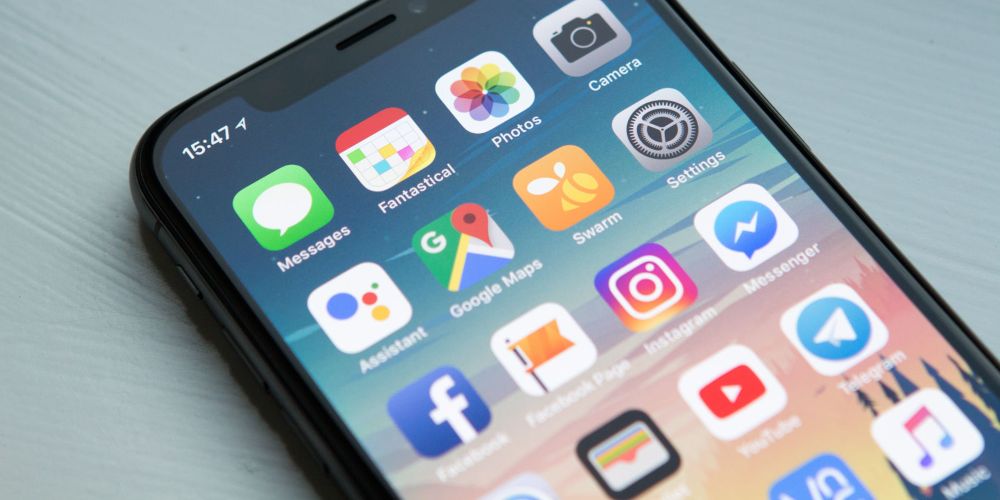It's funny how the value of a dollar is relative.
For example, I recently spent $5 on a bag of mandarins that looked great in the store but turned out to be horribly bitter. I really need some citrusy goodness in my life right now, so to say that I was disappointed would be an understatement. I was crushed.
They're still sitting in my fridge and I don't know if I have the willpower to finish them off. A waste of money, but it is what it is.
Compare that to another recent situation where my buddy Dave mentioned that he had spent $1 to buy Heads Up! in the iOS App Store. (To be fair, he was testing it out for his article on fun mobile games to play with friends in the same room.)
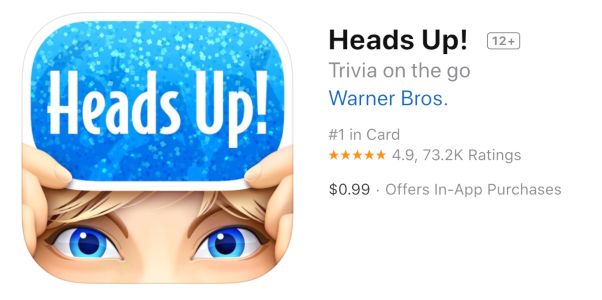
"You spent money on a mobile app? Are you insane? There are so many free apps you can download instead!"
But I've been thinking about that. Is it really that crazy to spend money on a mobile game or mobile app? Didn't I just throw away $5 on fruit and shrug it off? Why is that OK and yet I'm recoiling at the thought of dropping $1 on a mobile app purchase?
There's no hesitation when I buy a $9 Chipotle burrito that I'll eat and forget about in a few hours. But I could agonize over whether $3 for a useful note-taking app is worth it—even when I know it'll bring me years of convenience, productivity, and/or entertainment.
What's going on here? Let's look at some potential reasons why everyday people—even those who have disposable income to spend and are willing to spend it—avoid paying for premium mobile apps.
1. Mobile Apps Aren't "Real"
In a study published by Monash University, researchers found that we don't treat tangible and intangible products the same way:
"The findings from the two brain imaging experiments suggest that people are processing the intangible and tangible objects very differently within their brains."
Robert Eres
Whereas a $4 latte from Starbucks is easy to rationalize because you can hold the physical product in your hand, it's supposedly tougher to justify spending $4 on something digital.
But I'm not entirely convinced on this, given the huge rise in popularity of microtransactions in gaming and how easily people will fork over cash for virtual goods and benefits.
Those same people—along with most others like myself—who happily spend cash on virtual in-app purchases still balk at the idea of buying a premium mobile app. There has to be more to it than tangibility.
2. Mobile Apps Don't Offer Enough Value
Some people think mobile apps aren't the same as "real" software and don't provide the same kind of value as "real" software.
That might have been true years ago when mobile apps were still in their infancy and smartphones weren't powerful enough to run sophisticated programs...
These days, smartphones are packed with processing power and graphical capabilities on par with some laptops—assuming the smartphone in question isn't more than a few years old—and can run apps that are as useful as any bit of "real" software.
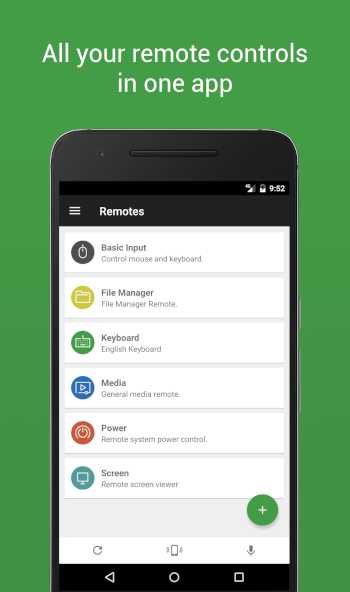
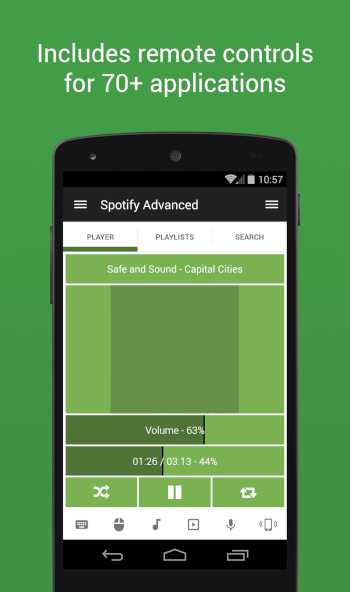
Are you telling me that you wouldn't get $5 worth of value out of a mobile app like Unified Remote, which lets you remotely control your PC in all kinds of ways using your phone?
This app could change your life for the same price as a family-sized bag of Doritos. It ought to be priced higher, if you ask me!
It's just one example of a premium app that provides real-life value, and there are plenty of others (many which can be bought for $5 or less). That's a steal! Anyone who says premium mobile apps aren't worth paying for hasn't thought about it enough.
3. Too Many Good Free Mobile Apps
Mobile games and mobile apps have gotten really good over the past few years, and many of them are free to use.
Sure, you might have to put up with banner ads and gated features that can only be unlocked with in-app purchases, but the core functionality is usually available for free. Some mobile apps don't even have premium option—they're just 100% free.
Why would I pay $5 for Poweramp when I can just download and install Shuttle Player, which doesn't cost anything and provides everything I need from a mobile music player app? Why spend $9 on Dead Cells when there are hundreds of other fun, free mobile games?
At least, that's the common thought process.
A premium mobile app needs to be significantly better than free alternatives to be worthy of consideration now. And given how saturated the mobile landscape is with free apps that are really quite good, it's become almost impossible for premium apps to stand out.
4. Buying Mobile Apps Is Inconvenient
With the modern prevalence of Apple Pay and Google Pay, buying a mobile app has never been easier. Your next mobile app purchase is usually just one or two taps away—if only there wasn't a psychological barrier in the way.
I don't like to save my credit card details. That means I'm forced to type in all of that information any time I want to make a mobile purchase. And if I don't feel like getting up and grabbing my wallet? I'll just decide to move on, sans purchase.
It's a different story when I'm at the supermarket, where I can just toss a bag of fruit into my shopping cart, knowing that I'm going to pay once for everything in it anyway. There's less friction in the decision.
5. Mobile Apps Are All-Or-Nothing
Most of the time, the things we buy still provide value even if they don't live up to our expectations.
If I buy a crappy can opener, it might not be as easy to use or last as long as a more expensive can opener, but at least it can still open cans. It might be disappointing, but it's not totally useless—and that helps to soften the blow as far as buyer's remorse.
Similarly, if I spend $10 on a meal that isn't so good, I might regret it because I wouldn't dwell on it too much because I need food to survive and the meal still satiated my hunger. It wasn't perfect and it didn't live up to my expectations, but I still got some use out of it.
But premium mobile apps are different. When you buy a premium mobile app, it has to be perfect or else it's a failure. Why pay money for a half-sufficient app when you can settle for any of its free alternatives that are also half-sufficient?
And that puts a lot of pressure on the decision. If supermarkets had free oranges next to their for-sale oranges, you bet people would agonize more over whether to settle for free or spend money.
What about mobile app refunds? That should help, right?
Google accepts refunds for up to 48 hours after buying an app on the Google Play Store, no questions asked, limited to once per app. Apple only allows refunds for certain valid reasons, but the refund window is generous: up to 90 days after purchase.
For Android users, two days is rarely enough to properly evaluate a premium mobile app. For Apple users, the risk of a denied refund request is enough to make one think twice.
Don't Be Afraid to Buy Mobile Apps
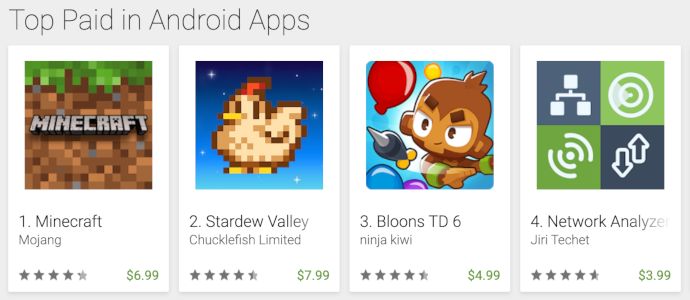
Obviously, people are buying mobile apps. But we can't deny the reality that people are reluctant to pay for premium mobile apps and games.
I suppose my conclusion is that my own aversion to paying for mobile apps is irrational and that I should be more willing to drop cash on apps and games that would benefit my life.
After all, what's $3 in the grand scheme of things? Especially if that $3 unlocks an amazing app or game for the rest of my life? When put that way, it's strange that I don't buy apps more often.
Not to mention that premium apps are usually more polished and more frequently updated, premium apps don't have ads, most premium apps don't collect and sell your personal data, and premium apps support the livelihoods of honest-working app developers.
I'll still use free mobile apps, especially when they're as good as any paid alternative. But going forward, I'm going to make an effort to buy more apps when I feel that free options aren't enough.
